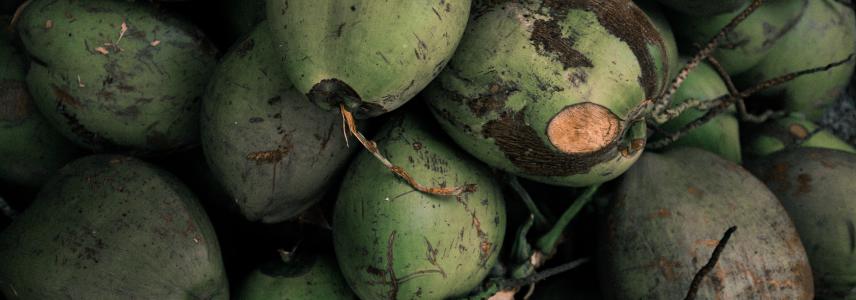How Thailand plans to end monkey labour in the coconut sector

Thailand is making an effort to end monkey labour on coconut farms. The country's Monkey Free Plus programme improves coconut sustainability and supports animal wellbeing.
Thailand's Department of Agriculture (DOA) wants to promote good agricultural practices (GAP). So, DOA has set up measures for coconut farms in its GAP Monkey Free Plus programme (GMFP). The programme aims to:
- Ensure the quality of coconut products; and
- Prevent monkey labour during harvesting.
Certification in the coconut sector
Within the GMFP programme, companies and organisations are already taking steps for certification. For example, Bureau Veritas (BV) in Thailand is an independent organisation that carries out BV Monkey-Free Coconut Due Diligence Audits. The family-owned company Theppadungporn Coconut (TCC) asked BV to carry out random audits among its suppliers in:
- Samutsongkram, Ratchaburi, Prachuakhirikhan; and
- Nakhon Sri Thammarat provinces.
That makes TCC a leader in the field of GMFP certification in Thailand. The company received the first GAP Monkey Free Plus certificates from Thailand's DOA. These certificates confirm that TCC's harvesting process is monkey labour-free. But to get this certification, coconut farmers must apply for an audit because an audit can verify that the farms are monkey labour-free and meet international agricultural standards. And that is difficult because this is the first time anyone has audited monkey labour.
Certification effects outside of Thailand
Thai authorities see the certification launch as an urgent matter. The new certification system has already attracted attention:
- In Europe: The British Retail Consortium (BRC) recently updated its members on the Thai GMFP new certification impact; and
- In the United States of America (USA): Earlier this year, HelloFresh, USA's leading meal-kit business, announced it would no longer sell coconut milk from Thailand.
HelloFresh based its decision on a report by People for the Ethical Treatment of Animals (PETA). PETA Asia states that the coconut industry in Thailand still forces chained monkeys to climb tall trees for hours and pick heavy coconuts. PETA urged consumers to buy canned coconut milk only from brands that get coconuts outside Thailand. This request has led to greater efforts in Thailand to end animal labour completely.
Helping abused monkeys
Next to the audits, certification and reports, TCC works with Ampol Food Processing and the Wildlife Friends Foundation to create solutions for a monkey-free agricultural environment in Thailand. The partnership helps abused monkeys by:
- Creating an effective rescue system; and
- Setting up a rehabilitation system that improves the monkeys' quality of life and wellbeing.
Learn more
To learn more about the importance of CSR as a coconut exporter, read our studies on desiccated coconut and coconut water. Read CBI's tips to become more socially responsible and learn about the importance of sustainable business practices to access international markets.
Autentika Global wrote this news article for CBI.
Stay informed
To stay informed on the latest developments in the processed fruit and vegetables and edible nuts sector, subscribe to our newsletter.